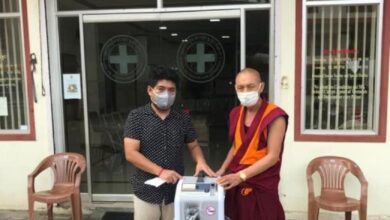By J.A. Jones
ST. PETERSBURG — Describing itself as a “mobile travel guide,” Green Book of Tampa Bay is an online resource that offers its readers information on African American cultural sites, black artists and black-owned businesses in Pinellas and Hillsborough counties.
The site was created by Joshua Bean and Hillary Van Dyke, two educators who met at Azalea Middle School, where Van Dyke was an eighth-grade teacher and Bean was a school social worker.
The phrase “Green Book” is, of course, a nod to the “Negro Motorist Green Book,” the guidebook listing safe places for African Americans to visit, stay overnight in or buy services from while traveling across the country during the reign of Jim Crow laws (about which the award-winning 2018 movie was made).
Instead, Bean and Van Dyke’s guide offers information to help educate readers about and encourage visitors to spend their dollars with African-American retailers and professionals — to build black economic stability in the region.
Their long-range hope? That their project will be part of a changing tide, resulting in more opportunities for the region’s most valuable asset: our youth.
“The thing that started spurring our conversation about economic vitality was the epidemic of car thefts in our community,” explained Van Dyke, referring to a rash of thefts that resulted in the deaths or imprisonment of several of their students.
The fact that students they knew were dying or being jailed alongside adults for car thefts or theft-related incidents was just too painful for the young educators to accept.
Bean — who also worked for the Department of Juvenile Justice and in foster care before deciding he wanted to work in the school system — gave Killer Mike’s series Trigger Warning’s first episode, “Living Black” credit for “catapulting” the idea into reality.
In the episode, after vowing to only frequent black businesses quickly becomes an “impossible dream,” Killer Mike proves to himself and the audience how difficult it is to find a self-sufficient black community that can provide all of its own needs.
“After that first episode I was looking around, and there was no easy database or directory [for black businesses],” commented Bean, who today works as a social worker in the Pinellas County Schools’ Prevention Office and Student Services Department.
Feeling there needed to be a more consistent and updated resource for those who lived in the city, were visiting or had just relocated, Bean brought the idea of launching the site to Van Dyke.
The two also hoped that by highlighting black businesses and holding “Buy Black Fridays” on Facebook – which encourages people to patronize black businesses and post photos of their visits — they would raise awareness about the power of circulating dollars among black businesses.
Today, Van Dyke is the senior professional development coordinator for equity in the Pinellas County School System, and a self-declared “warrior for racial and educational equity.” She feels more needs to be done to reverse the systemic failure that has left a shortage of jobs for young people and a general lack of employment opportunities for the south St. Petersburg community.
“If you look at downtown, there’s no shortage of restaurants and stores for people to work at, but the second you cross Central Avenue, the more south you go, it’s harder to find [businesses],” stated Van Dyke. “And just the concept of having a job and making your own money – there’s just study after study that proves that when you have that, you’re not out committing crimes with the same frequency,” she added.
She points to Houston’s Mayor Sylvester Turner’s project Hire Houston Youth as one model of addressing the issue.
Turner has called upon corporations, government agencies and community organizations to participate in the program to “increase access to quality ‘earning and learning’ opportunities for Houston’s youth.”
According to the website, in 2018 more than 10,000 youth ages 16-24 applied for over 7,500 opportunities, earning at least $8 an hour for the summer program, with more than 3,000 youth completing job readiness programs.
While leaders and communities still have a lot of work to do to supply the region’s youths with the necessary skills, jobs and economic and educational equity – opportunity and equity that UNITE Pinellas’ recent report proves is sorely lacking — projects such as Green Book of Tampa Bay offer new ways to combat old issues.
Currently, Green Book of Tampa Bay highlights businesses, vendors, entertainment and events in 15 categories, from real estate and insurance to mental health and wellness to DJs and event planners.
The guide also shares photos of Bean and Van Dyke’s visits to the various vendors on its Instagram and Facebook pages (@greenbooktb) and includes listings from black businesses on both sides of the bay.
Visit Green Book of Tampa Bay at https://greenbooktampabay.home.blog/. For more information or to be included on their site, reach them at Greenbookoftampabay@gmail.com.
To reach J.A. Jones, email jjones@theweeklychallenger.com.
This article originally appeared in The Weekly Challenger.






